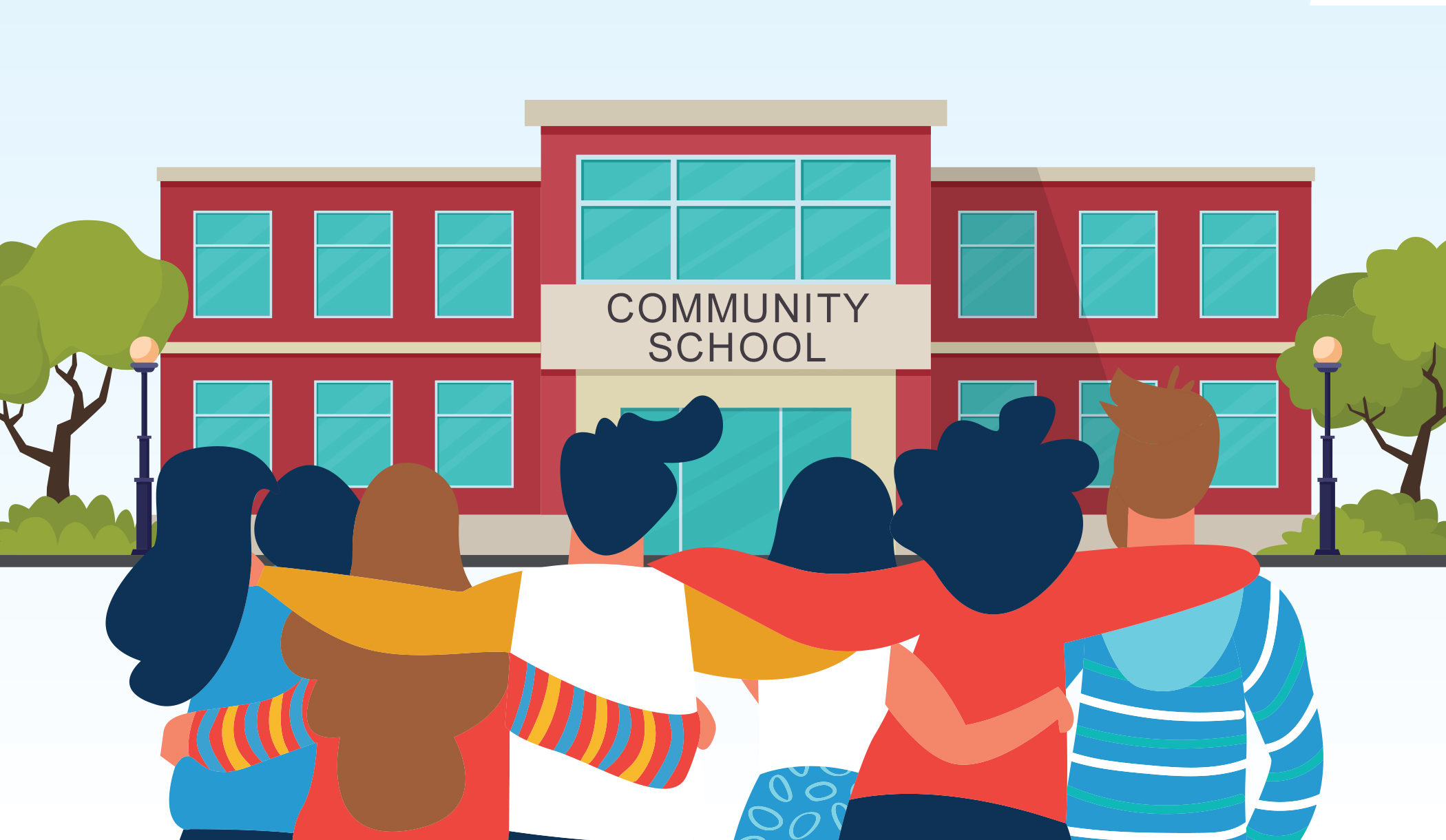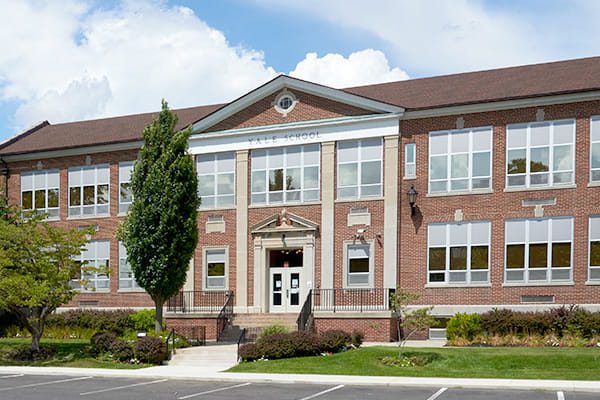Check Out the Difficulties Facing Our Neighborhood: Save Temecula Schools
Wiki Article
Understanding the Importance of Colleges in Child Growth and Area Growth
Colleges' involvement with local areas via service-learning campaigns reinforces the bond between family members and instructional organizations. This symbiotic partnership emphasizes the relevance of institutions in supporting active citizenship and lifelong learning practices.Academic Achievement
Academic achievement functions as a foundation of youngster growth, supplying the foundation whereupon future learning and success are constructed. Institutions play an essential duty in cultivating this academic growth, supplying structured settings where kids can acquire important understanding and cognitive skills. Standard educational program ensure that pupils gain effectiveness in core subjects such as mathematics, science, and language arts, which are critical for both greater education and learning and specialist opportunities.Along with passing on essential scholastic skills, colleges also cultivate vital thinking, analytic capacities, and intellectual inquisitiveness. These cognitive competencies are essential for navigating complex real-world situations and adjusting to the ever-evolving demands of the modern workplace. Educators, as facilitators of learning, utilize diverse pedagogical approaches to accommodate different knowing designs, thereby making the most of private trainee possibility.
Moreover, academic success is very closely linked to self-confidence and inspiration. Kids who experience scholastic success are most likely to establish a favorable self-concept and a long-lasting interest for discovering. Colleges additionally offer various sources, such as libraries and technology, which better improve the academic experience and prepare pupils for a highly innovative society.
Social Skill Advancement
Beyond academic success, the role of schools in social ability development is vital. Schools act as a key place for children to discover and practice vital social abilities such as collaboration, conflict, and communication resolution. In the organized environment of a classroom, pupils connect with peers, instructors, and other school team, providing countless possibilities to establish these important capabilities.Efficient social skill development in institutions is promoted via group activities, joint tasks, and extracurricular programs. These communications assist students comprehend social norms, construct compassion, and cultivate a feeling of neighborhood. Team projects teach trainees exactly how to work with each other in the direction of an usual goal, listen to different point of views, and navigate disagreements constructively.

The farming of social abilities during institution years lays a structure for future individual and professional connections. Save Temecula Schools. As trainees mature, the ability to effectively communicate and collaborate comes to be increasingly important, underscoring the school's important duty in holistic youngster development
Exposure to Variety
Exposure to diversity in institutions is fundamental to fostering an inclusive attitude and widening trainees' point of views. Schools serve as a microcosm of the wider society, and coming across diverse societies, languages, and socioeconomic backgrounds within this environment outfits pupils with essential skills for navigating a progressively globalized globe. This exposure urges empathy, lowers bias, and promotes common respect among peers.Diverse classrooms also improve cognitive and social growth. Research study indicates that students that connect with peers from different histories show much better problem-solving abilities and imagination. They discover to appreciate different point of views, which enriches class conversations and promotes a more dynamic knowing experience. This understanding of diversity prepares pupils for future offices that worth multicultural capability.

Neighborhood Involvement
The advantages of varied classrooms expand past the school walls, fostering a solid sense of community interaction among students. By engaging with peers from numerous social, socioeconomic, and ethnic histories, trainees gain a broader perspective and a recognition for variety. This exposure urges them to come to be energetic residents that are prepared to add favorably to their communities.Colleges that emphasize neighborhood interaction commonly integrate service-learning jobs, which enable pupils to resolve real-world troubles while using academic skills. These jobs not only boost pupils' understanding of their coursework however likewise infuse a feeling of obligation and empathy. Partnerships between schools and neighborhood companies offer pupils with possibilities to participate in area events, further strengthening their function as positive community participants - Save Temecula Schools.
Furthermore, parental and community participation in institutions strengthens the bond in between schools and the communities they offer. They develop a collective environment that profits all stakeholders when schools open their doors to neighborhood occasions, workshops, and volunteer possibilities. This mutual assistance system guarantees that trainees receive holistic growth, preparing them to end up check my site being well-shaped individuals who add and value to their communities. With these initiatives, schools play a pivotal function in supporting community involvement and fostering social development.
Lifelong Discovering Behaviors
Developing lifelong knowing behaviors is essential for a child's constant growth and adaptability in an ever-changing world. Institutions play an essential duty in instilling these behaviors by developing an atmosphere that promotes interest, important reasoning, and a love for understanding. With diverse curricula and extracurricular tasks, teachers motivate students to explore various subjects, analyze details seriously, and use their finding out to real-world scenarios.
Additionally, schools supply an organized environment where kids can develop self-control and time monitoring skills, both of which are vital for continuous understanding. By stressing the importance of setting goals, assessing progress, and adapting strategies, academic establishments prepare pupils to navigate the complexities of grown-up life, ensuring they continue to be long-lasting students and factors to society.
Verdict
To conclude, institutions are crucial in fostering child growth and neighborhood development by giving settings for academic accomplishment, social ability growth, and direct exposure to variety. Via collective projects and interactions, schools enhance crucial reasoning, empathy, and communication skills. Community engagement initiatives even more strengthen the bond between academic organizations and regional neighborhoods. Inevitably, colleges grow lifelong learning behaviors, equipping people with the needed understanding and abilities to contribute positively to culture.In the structured setting of a classroom, trainees connect with peers, teachers, and various other school personnel, providing countless chances to develop these vital capacities.
In significance, direct exposure to diversity within colleges not just improves private students yet also enhances the social fabric of the area as a whole.
The benefits of varied class extend beyond the college wall surfaces, fostering a strong sense of community interaction amongst students.Schools that emphasize neighborhood involvement frequently integrate service-learning tasks, which enable pupils to resolve real-world problems while applying academic skills. Partnerships in between colleges and neighborhood organizations offer trainees with chances to get involved in community events, even more strengthening their function as aggressive area participants.
Report this wiki page